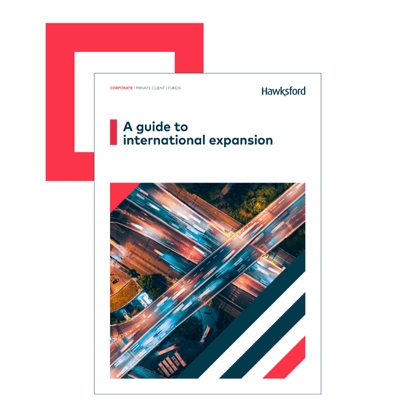China is a unique country, historically, politically and culturally. In recent years, its business market has rapidly evolved to reflect its changing position within the international market and to adapt to the restrictions placed on the country as a result of the Covid-19 pandemic.
From its burgeoning middle class to its interconnected infrastructure and progressive technological development, as well as its economic uncertainty due to Covid-19 travel restrictions and zero Covid policies, China has become both an extremely attractive and complex place to do business. As a result of these market complexities, the role of financial services consultants in the region has changed.
But just how has the role of consultants changed in China? What are the underlying reasons for this shift, and what does this mean for financial services businesses operating in the region?
The attraction of China
China has become an increasingly popular destination to do business and one reason for this is the sheer size of its domestic market and its rapidly growing middle class. China can offer high spenders to the consumer sectors, and suppliers and clients are easily accessible to businesses through the specialised, regional districts along the coastal areas.
Businesses also benefit from China’s interconnected infrastructure and its ability to solve most of its geographical challenges through a myriad of world-class transportation hubs. This includes 42,000 kilometres of high-speed railways, 34 major deep-water ports and 180,000 kilometres of highways. As a result, single-day delivery is now achievable for the majority of retail businesses across the country.
What’s more, technological development and the pace of industrial modernisation has seen mass adoption of Internet of Things (IoT) and Artificial Intelligence (AI). As a result, we are seeing sectors such as healthcare, security, finance and education growing and adopting these technologies via smartphones and apps, as well as the implementation of robotisation in labour-intensive industries.
Innovation and the move to a consumption-based economy
In recent years, one of the biggest trends we have seen emerging in China is the push to move on from an investment-driven model into a consumption-based economy.
The government has launched two separate plans – MiC2025 and Dual Circulation – which offer guidance on the targets and challenges of this top-down push. MiC2025 has indicated 10 main industries – including pharma, farming, shipbuilding, aerospace, new materials and energy – in which the country should rival overseas leadership by creating its own champions. The goal here is to establish China as a global innovator and leader in these vital industries.
Similarly, the Dual Circulation strategy aims to reduce the dependence of China’s economy on foreign direct investment and overseas factors, while strengthening national supply chains and the quality of industrial and service output to appeal to local consumption.
Given the national focus of these policies, a growing number of businesses have experienced the politicisation of economic matters and exchanges, which is increasing as the Chinese market evolves. The Dual Circulation approach has clearly stated the end of ‘Cheap China’ as the main engine of economic growth, transforming the idea of ‘Made in China’ to become the tag of innovative products thanks to locally manufactured smartphones, civilian drones and EV cars.
The evolving role of financial services consultants
As a result of the dynamic Chinese market, businesses have become increasingly reliant on financial services consultants to gain crucial insights and navigate market developments. This is something we have witnessed first-hand in the region, with our role evolving from a strictly financial one – overseeing accounting, tax and HR matters – to one that embodies the ‘China go-to adviser’ for the overall performance of a business.
This evolution and the skillset it requires is providing consultants with an auxiliary responsibility. Rather than simply laying out options and scenarios for our clients to analyse, we are now directly involved in more decision-making processes, supported through data and updates from regulators and local agencies.
No matter how temporary the ‘outsourced compliance’ industry might sound, consultants are now seen as partners for stability – to the point where we are even asked to join induction meetings for their clients’ new staff.
Additionally, due to the lack of high-level personnel able to reach China, we are increasingly required to take a more direct involvement in our clients’ structures and step forward in corporate governance roles, which were previously considered as being restricted to in-house personnel.
As a result, consultants are now at the forefront of shaping clients’ resilience and we must adopt a 360-degree commitment beyond the traditional meaning of the word ‘consultant’.
The challenges of Covid-19
The travel restrictions and zero Covid policies posed on China during the pandemic have undoubtedly been some of the biggest challenges for companies doing business in China during the last three years. It forced many large companies to pause spending and led SMEs to struggle with interrupted cash flow.
As a result, this landscape has been a main contributor to the evolving role of financial services consultants as most were forced to adjust business strategies to rapidly changing market conditions and the current needs of their clients. More focus was placed on services such as negotiation with banks, cashflow forecasting and human capital advice, and consultants had to monitor the buying patterns of their clients much more closely.
Now that we have seen the long-awaited reopening of China, we are able to continue seizing new opportunities in the market following the nationwide resumption of work and the rebounding economy.
Renewed business activity in 2023 will likely offer consultants more insights into the sectors actively promoted by China – with health, food and beverage and fashion and luxury retail already looking like key players – allowing them to further enhance their offering in these sectors.
Adapting to client needs
Here at Hawksford, our renewed set of responsibilities has sped up the pace at which we gather expertise, in a wider set of client sectors. As these needs are seen as vital throughout all the different industries we service, it has made it easier for us to understand the general impact on the market and recognise the specific challenges and best practices to apply to each case.
We understand and can navigate the challenges that come with the continuously evolving Chinese market, adapting our role to match this. Whether it’s accounting, tax and HR solutions or more direct support with things such as corporate governance, our team of experts is here to help.

Get in touch with our experts
Find out more about our range of services and how we can support you with business in China.
Updated on



